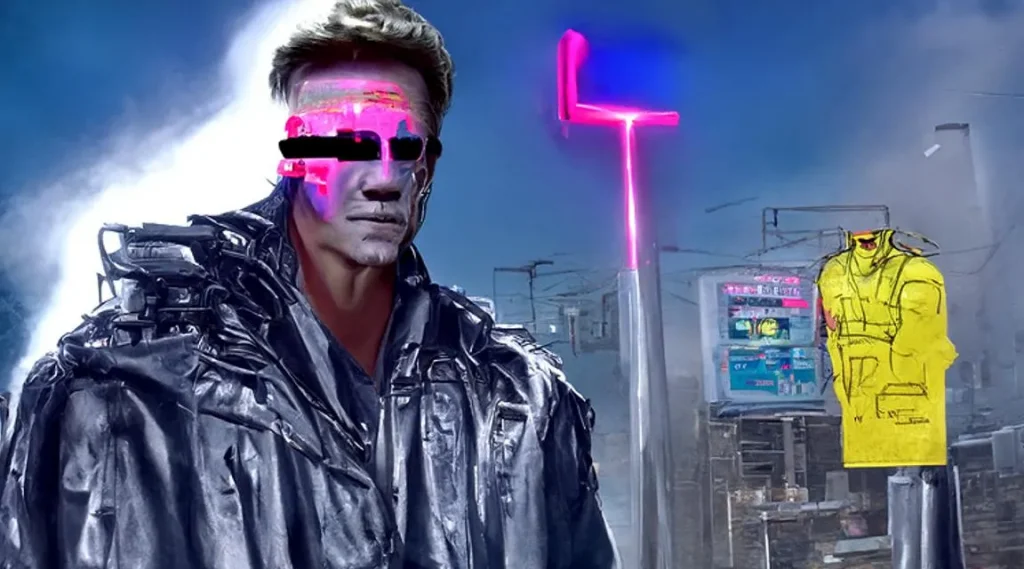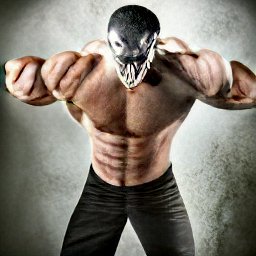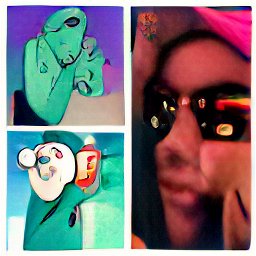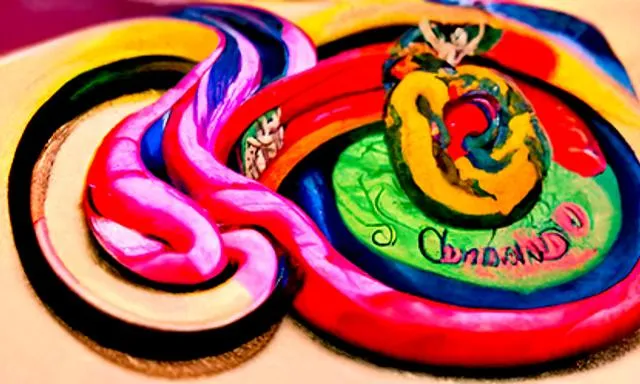
You may have sometimes wondered whether you have become the person who you were destined to be, or the person you want to be, or ought to be. How are the expectations about who you are, or who you should be, framed? Do you often pose this question to yourself, with a view of changing or reinventing yourself?
Perhaps you want to be a model, but the most important people around you value you not for your attractiveness, but because you’re the best mother possible for them. It may be that you want to be seen as strong, as a tough guy, but people don’t see this in you at all. Perhaps who they actually see is someone who always knows the right thing to say, who listens, is caring and trustworthy, someone that they can always rely upon to talk to without feel judged. Perhaps we have seen how children who were slow in school were treated by teachers and other students, so we decided we were going to be the clever ones who always had the right answers – but even though we view ourselves that way, others don’t view us as intelligent but just as a hard worker.
Maybe you view yourself as successful, but everyone else in your family feels like you are trying too hard to seem special, and what they really value about you is how you cook amazing food, or make thoughtful birthday cards.
Learning these kinds of things may even be very disappointing to our ego. I know it was for me. We may find it disempowering and frustrating that people just don’t see us in the way that we expect that they should. This is often because the masks we try to wear never tend to do anywhere near as good a job at representing us as we think they should.
In a world full of horses trying their hardest to be unicorns, just a simple, honest horse is a rare phenomenon. Striving to be special has become thing one thing we can expect from nearly everyone, making the thrust toward specialness perhaps the most ordinary of human traits.
The way we build our expectations about who we are, or how we should be in our minds is often bound up with our core beliefs about who we originally learned to want to be. These are often conclusions made very early on in life about our role and our place in the world. Maybe when we were children, we thought we weren’t safe, so we wanted to be viewed as a strong protector. Perhaps we saw how unhappy that the people in poverty were around us, so we concluded that appearing well-off and fancy was valuable.
What really matters is that we have unexamined core beliefs that feed directly into who we think we should be, how our role should play out in life, and how this ought to be reflected in the eyes of others present in our lives.

Instead of recommending that we go about throwing out every single belief we have about ourselves and others, why don’t we simply start by looking at how we hold onto our own views about ourselves and how we expect to appear before others? If we can just loosen our grip on these expectations, we might be surprised at what rises to the surface in our relationships without forming any firm rules about how we would like to appear.
The mind can act as an extremely powerful filter. Our beliefs can totally cloud what appears in front of us to the point where we are not seeing any of reality.
Some lines of self-inquiry in a quiet space might be: how important is the way that I am perceived by others relative to the truth of who I am? Who am I, truly? Who am I without the influence of expectations from myself or others? Is it true that I will only be a success as a person if my circumstances and appearance match up with my ideas of what a successful person is? What are some of the ways in which I have created and been following my own recipe for misery?
Would my true conditions for success ever strike anyone as particularly commendable or special? If yes, or no, would that ultimately prove of lasting consequence? What if I found my calling, along with peace, happiness and well-being, but nobody on the planet ever recognised the value of that for my entire life?
Would I be able to live with that, or would I choose what my mind had in store for me that has not made me happy or peaceful, but might convince others that I was special, powerful, advanced or successful? What would the ultimate value of that be? Could you dispense with every idea of being whatever your version of a worldly success was? How would that feel, and what exactly would be left?
Our masks for ourselves have been tailored since childhood. Some of the shaping of that mask is due to the efforts of others imposing their values and expectations upon us, and still more of it is about how we have continued to shape that mask in response to others’ expectations.

Those claiming power and authority demand we act one way, so we make our mask look like we either obediently conform, or we are in rebellion against them. Perhaps because the world tells us that tough guys are survivors, we wear a mask of being a man of the world, an impervious survivor. Perhaps the world tells us we have nothing material to contribute to society because we lack success or attractiveness, so we wear the mask of the intellectual one, or the holy one, the one who is mysteriously above it all.
Point this out to any mask-wearer and they will be angry and embarrassed. Mask-wearers the world around seem to hold to a mutual understanding of not calling each other out, because we risk exposing ourselves.
The simple fact of the matter is, a mask is just a mask. Other egos know that. They even rely upon it to make sure you will fall into line with their delusions.
In the game of delusions and lies, the demon Mara is always one step ahead of you. You aren’t ever going to out-illusion the source of all illusion. No one succeeds in the world of Maya, the world of illusion, they just keep going around in smaller or bigger circles. The only progress we can make in this is when we give up the game of appearance. Our activities beyond this then are virtually invisible to the world of ego, because they don’t factor into ego’s schema of gaining and getting.
Only appearances matter to the False Self, so why would it value authenticity? We can’t even say whether our masks are even perceivable to other egos in the way we think they are. We assume that one way of appearing, behaving or speaking makes us seem powerful or admirable in the eyes of people, but to most people it may make us appear reaching or weak-minded. We wear a mask that we assume means people will think we are insightful and have special access to all the answers, whereas people might really just see us as a blowhard.

Even when people agree exactly with the fiction we portray, then what? Does our fiction become true? Even if our ruse is successful, what will sustain us until next time?
I remember as child I was obsessed with every subtle movement of my body conveying the appearance of having a robotic metal skeleton like the Terminator. This was mainly because I had concluded, in my nine-year old’s mind, that nothing else in the world would impress pretty girls more. Now, with the benefit of hindsight, I would bet my last dollar that over the course of that time I was engaged in this ruse, not a single person (never mind a pretty girl) concluded that I was just a skilfully disguised Terminator.
What most people don’t focus so much upon is that wearing a mask is painful, however you have made it. It is uncomfortable, it is heavy, it is unnatural. We all wear them because we think we have to, being part of the human tribe. When I was pretending to be a Terminator, I was not experiencing joy. I was experiencing great suffering, having concluded that I needed to beg others for love and a sense of worth.
Taking a mask off is a relief for people, which is why people feel such relief when they are by themselves. Note that when we are around entities that we do not perceive as judgmental of us, such as our cats or dogs, we can still unwind and relax. It is fellow humans where we invest the sense of not only threat and demand, but the sense of promise that we may be meted out a rare share of love, praise or worth.
Our masks rarely convey the impression on others that we assume they do. We all take them off when we go to sleep at night, so why not practice leaving them off when we wake up in the morning? See what the real-world consequences are of you not following your own rules about how you should appear , and who you think others should think you are.
You might just find a welcome respite.
I have personally discovered that the greatest possible gift I could have given myself and the world is to retire one mask-wearer, one source of delusion. Looking back on this life, I maintain that I would rather have this freedom than any mask the mind could conjure. The really relevant question is: who should you be?
*
Simon P Murphy is a Nelson-based esotericist and philosopher, and author of His Master’s Wretched Organ, a brilliant collection of weird fiction stories.
*
If you enjoyed reading this essay/article, you can get a compilation of the Best VJMP Essays and Articles from 2021 from Amazon for Kindle or Amazon for CreateSpace (for international readers), or TradeMe (for Kiwis). Compilations of the Best VJMP Essays and Articles of 2020, the Best VJMP Essays and Articles of 2019, the Best VJMP Essays and Articles of 2018 and the Best VJMP Essays and Articles of 2017 are also available.
*
If you would like to support our work in other ways, subscribe to our SubscribeStar fund, or make a donation to our Paypal! Even better, buy any one of our books!
